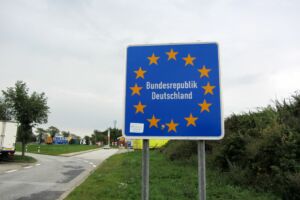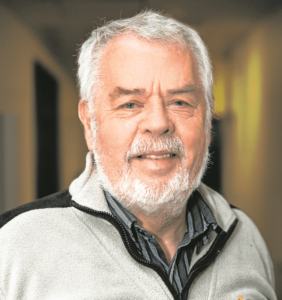Opinion
This Week’s Editorial: From emotion to business
Ejvind Sandal
This article is more than 9 years old.
The reality of the narrative towards refugees cannot be ignored

Ejvind Sandal offers his take on the situation. (photo: MPD01605)
The Danish media and political establishment are pursuing a very unsympathetic narrative regarding the refugees – those already here and the additional 25,000 expected in 2016. Nobody likes a lot of refugees, but the reality cannot be ignored, and Denmark needs to decide whether this is a challenge to embrace or a burden to carry.
The forgotten
Recent coverage has now moved on from rhetoric about humanitarian and social solidarity to concerns about money. Forgotten are the desperate crowds who walked along Danish motorways. Forgotten is the drowned little boy and the pile of stones that used to be somebody’s home.
Now all we hear is municipalities complaining about bearing the cost and asking for government assistance. We have a majority of Venstre mayors around the country, by the way.
Every krone spent
A total of 9 billion kroner is the price tag for 2016. It is a lot of money. But that is out-of-pocket and not the real cost – simply because every kroner spent will be spent in Denmark. For starters, moms (VAT) of 25 percent will be charged and that the money will eventually make its way back to the Finance Ministry.
Much of the spending will be spent on infrastructure – tents, clothing, food, heat – which somebody (probably in Denmark) will be supplying in exchange for money and then consuming or paying back as taxes.
Not lost but won
The calculation for the additional services needed, which has been released by the municipality organisation Kommunernes Landsforening, is impressive. It estimates the number of refugees arriving in the country will create the need for an estimated 80 new daycare centres and 1,200 new educators.
Additionally, KL has calculated there will be a need for 21 full-time doctors, 21 dentists and 42 dental assistants. Special remedial classes for children and housing will also have to be addressed.
But if the people needed to fill these roles are recruited locally, they will pay taxes and some will come off unemployment benefits.
And then there are the refugees themselves. Some are probably better qualified, and with a more relevant background. In that case, the money is not lost but won.
Growth on the horizon
It is also obvious that most of the care will take place in Denmark where locals have been complaining about marginalisation. Now they will get action and funding at a pace that will outrun even the fastest moving government office relocation.
And public spending of this sort is even calculated into the official BNP summation. So on paper it appears that there will actually be growth.
Bearing in mind that public spending exceeds 1,500,000,000,000 kroner per year, it is pathetic to hear the unholy alliance of the press and politicians banging on about the economic strain. We are, after all, only talking about 9 billion kroner – maybe only half of that after the taxman comes calling.
Hope amongst the people
The good news is that more and more Danes are joining Venligtboerne, a NGO of good people who are welcoming refugees, helping them out and making them feel safe.
Hopefully they will show the world that we are a civilised nation after all – and not one that’s regressing to medieval standards after a few scratches on the surface by the dark forces amongst our media and politicians.

About
Ejvind Sandal
Copenhagen Post editor-in-chief Ejvind Sandal has never been afraid to voice his opinion. In 1997 he was fired after a ten-year stint as the chief executive of Politiken for daring to suggest the newspaper merged with Jyllands-Posten. He then joined the J-P board in 2001, finally departing in 2003, the very year it merged with Politiken. He is also a former chairman of the football club Brøndby IF (2000-05) where he memorably refused to give Michael Laudrup a new contract prior to his hasty departure. A practising lawyer until 2014, Sandal is also the former chairman of Vestas Wind Systems and Axcel Industriinvestor. He has been the owner of the Copenhagen Post since 2000.










































